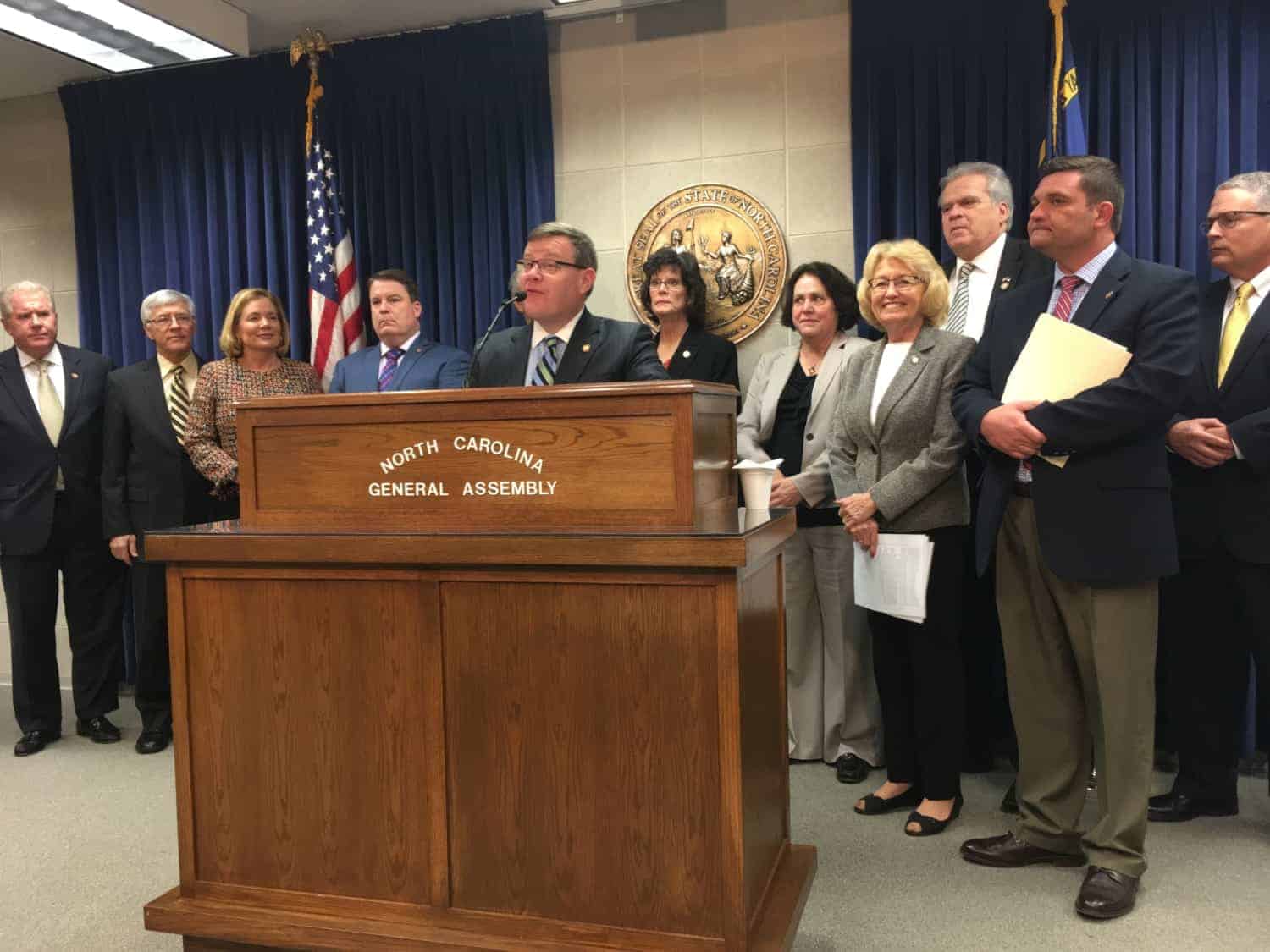House Speaker Tim Moore, R-Cleveland, introduced legislation to put a $1.9 billion school building bond before North Carolina voters during a press conference today.
He first announced his intention to introduce such a bill before the holidays. Since then, he’s been touring the state to spread the word about his plan, which would include about $1.5 billion for K-12 schools, and about $200 million each for the UNC System and Community College System. He said the public school leaders on the ground around the state are eager for help from the General Assembly.
“They support every proposal that helps their students,” he said. “They don’t care about the politics around it. They don’t care about the rhetoric around it.”
The Senate has already passed a competing bill that would use money from the State Capital and Infrastructure Fund to raise money for school construction over the next 10 years. The SCIF gets 4 percent of state revenue to take care of the state’s debt and for capital projects for state government and the UNC System. The Senate bill proposes increasing the share of state revenue that goes to that fund to 4.5 percent, and then splitting the funds between the K-12 system, UNC and Community College Systems, and state agencies. One-third will go to K-12, one-third to the higher education systems, and one third will go to state agencies, for a total of about $2 billion each. That bill heads to the House for consideration next.
Senate leaders say their bill would bring more money sooner and would avoid the state going into debt. Moore, as well as other supporters of the bond — such as Gov. Roy Cooper —say the Senate’s plan is no guarantee since future General Assembly’s could decide not to continue using the SCIF funds for building construction.
Meanwhile, the state’s public school systems are in dire need of help. According to a report heard by lawmakers back in 2017, the facility needs in counties around the state were close to $8 billion. That number has only grown over time. See that report below.
Moore said during the press conference that the “pay-as-you-go” plan proposed by the Senate would fundamentally change the relationship between local school districts and the state when it comes to infrastructure funding. Traditionally, local districts are responsible for building and maintenance, whereas the state pays for things like salaries, textbooks, and a host of other items.
He said the Senate plan would also tie up money in future budgets that might be better spent elsewhere in education.
“If you go with the bond proposal as opposed to an outright pay-as-you-go, it gives more stability,” he said.
He also said the bond proposal would allow the state to lock in low interest rates and get ahead of rising construction costs.
Leanne Winner, director of governmental relations for the North Carolina School Boards Association (NCSBA), thanked Moore for his leadership on this issue, and said that the school construction needs of districts are so big that they need the state to step in. The state does periodically pass bond proposals to fund K-12 school construction, but Moore said it’s been decades since the last one.
“The bond proposal if passed by the voters of this state allows school districts both the guarantee of funds and knowledge of the exact amount they will receive,” Winner said.
Rep. Craig Horn, R-Union, said that this bond is much needed given the age of many of the state’s school buildings.
“We have buildings that are now 50, 60, and some 70 years old,” he said. “Built at a different time for a different purpose.”
One provision in the bill relates to a long-running court judgement against the state. A 2008 court decision said the state owed the public schools almost $750 million in civil penalties collected by state agencies. Since the decision, the state’s public schools have only received about $18 million.
The crux of the issue revolves around the time period between 1996 and 2005, when the state held back money that the courts later said was owed to the state’s public schools under the state constitution. While schools have been receiving the money they’re owed since then, districts are still trying to collect on money owed prior to 2005.
The judgement was only valid for 10 years, and the NCSBA announced the filing of a lawsuit in August to keep it alive.
That money is meant to go to North Carolina school districts to pay for technology, and the extra provision in the bill says that funds used from the construction bond for school technology shall be credit against that $730 million judgement.



